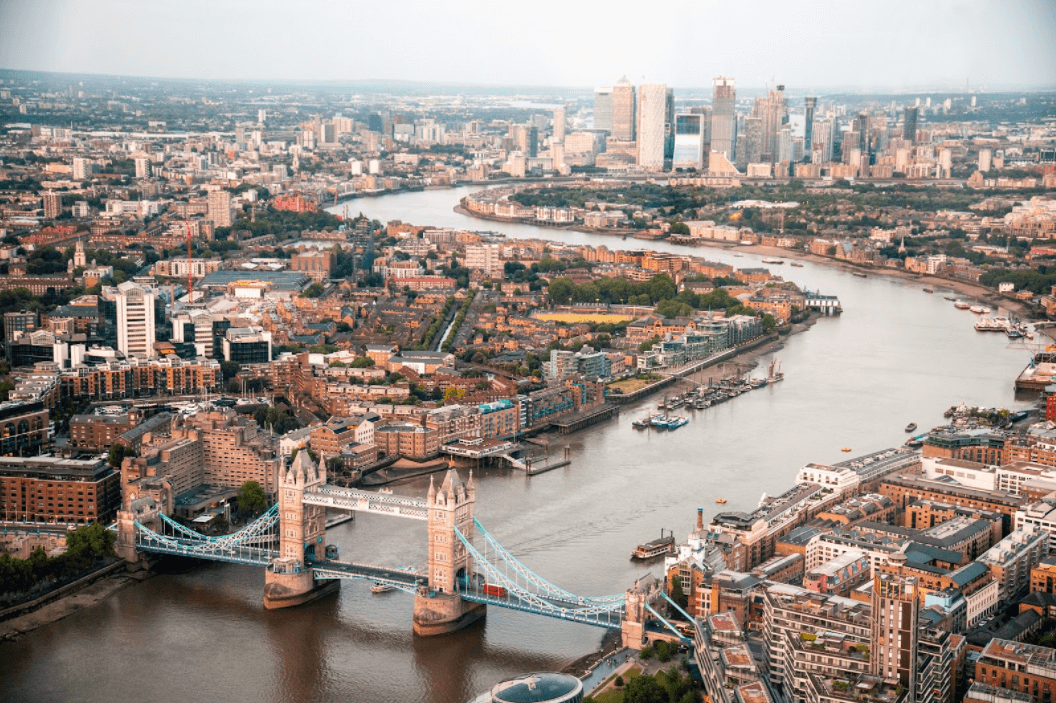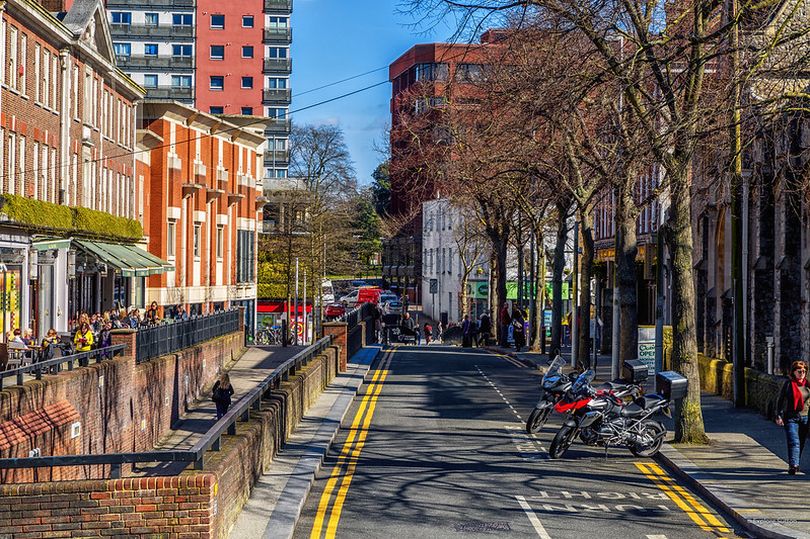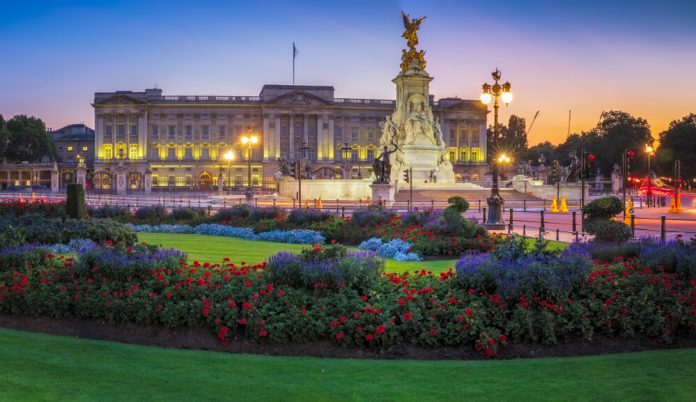London is a perfect destination to pursue higher education and careers in various industries. Moving to London will be one of your best life decisions if you know how to prepare yourself before heading to this city.
Here we have consolidated 11 latest must-know pieces of advice to help you in your preparations for living in London. This article provides you with information about the best places to live in London, the average cost of living in London, recommended activities, and tips.
1. Get Started By Knowing Basic Facts About Living In London
Before we dive deeper into what it is like living in London, UK, let’s start with these simple yet important facts.
Prepare For The Rainy Days
London is known as a rainy city. However, the overall frequency of rainfall in London is about the same as in other cities in Europe. It is only during the summer that London gets frequent rain. Therefore, having a raincoat or umbrella in your bag is a must, especially during summers.
The temperature in London is usually quite friendly, even during the winters. The coldest winter temperature is around 36 (2.2°C) to 43°F (6.1°C). Thanks to the pleasant weather in London, you’ll be able to do any outdoor activities comfortably even in the winter.
London Is A Multicultural City
London is home to 8 million people, with around 300 languages spoken in this city. You will love the diversity here, and meeting people in London can be fun.
It is highly recommended that you install Meetup and find a group with similar interests to you. This application is the safest way to meet new people and find new friends in London.
Oyster Card
You will need an Oyster Card when you arrive in London to pay for public transportation.
You can buy an Oyster Card at Oyster Ticket Stops, London Overground and most TfL Rail stations, Tramlink Shop in Croydon, and visitor centres. The card costs £5, and you can top up the balance of your card when needed.
2. Search For The Best Places To Live In London Before Moving
One thing that should be ready before you arrive in London is your home. Find the best places to live in London that are safe and fit your lifestyle.
Here we recommend some of the best neighbourhoods in London to make your search easier. Choose the one that fits your lifestyle and budget.
Notting Hill
Notting Hill is one of the best places in London for families. This neighbourhood is located in West London and has excellent amenities.
It is easy to find shops, restaurants, banks, grocery stores, and fitness centres in this neighbourhood. Notting Hill also has excellent public transit and walkability, so you will find it easy to get around.
On top of that, Notting Hill provides various housing options. Depending on the size, the home value in this neighbourhood ranges from £559,695 to £3.3 million. The average monthly rent in this area is £2,100.
Harrow
Harrow is one of the safest neighbourhoods in London. Its crime rate is 63 per one thousand people, making it a perfect area for singles, families, young professionals, and retirees.
This neighbourhood is overall a comfortable area to live in. You can find great amenities in this neighbourhood such as parks, schools, leisure centres, sports centres, restaurants, and shops.
Harrow offers plenty of options for housing with an average price of £540,134. For renters, the median monthly rent in Harrow is £ 1,400.
Sutton
Sutton is located in South London, the principal town in the London Borough. It is one of the safest areas in London, with a crime rate of 57 crimes per one thousand people.
This neighbourhood is perfect for everyone since it offers the ideal balance of suburb and city living. Sutton has plenty of green spaces and is home to top schools in the country.
Sutton also offers relatively affordable housing prices. The average property price is £484,083 in Sutton, and the average monthly rent is £1,263 for an apartment.
3. Familiarise Yourself With The Average Cost Of Living In London
The average cost of living in London is around 58% higher than the rest of the urban areas in the UK. A family of four can expect to spend about £3,042 monthly without rent. A single person in London typically spends around £863 without rent.
To afford the cost of living in London, you should earn £40,000 a year. You can use this number as a benchmark if you receive a job offer to work in London.
However, you can outsmart the living expenses in London by asking for tips and shop recommendations from your local friends. Once you know the tricks, you can save money while living in London.
4. Don’t Hesitate To Dive Into London Job Market
The employment rate in London is 74.9%, which is pretty high. This rate is based on workers aged 16 to 64 years old. The job growth in London is expected to keep growing as the businesses start to thrive again.
For your information, the highest demand jobs in London are:
- programmers and software developers;
- cyber security specialists;
- health services and residential care; and
- architects.
If you have the experience and expertise in these areas, you will likely find job opportunities in London.
5. Pursue Higher Education In The Best Universities In London
London is one of the world’s favourite places to study. This city has 18 universities that provide education for various programs.
Here are some of the high rated colleges and universities in London that will be beneficial to advance your career in any industry:
- Imperial College LondonThe Lond
- on School of Economics and Political Science (LSE)
- University College London (UCL)
- King’s College London, and many more.
6. Learn To Use Public Transportation To Get Around In London
Transport for London (TfL) controls almost all public transportation in this city, including the London underground, buses, tram link, railways, and overground transport.
One thing you must remember is London buses are cashless. You’ll need an Oyster Card to pay for your transportation fare. The bus fare for a one-way trip is £1.55, and the maximum cost for bus-only travel is £4.65 a day.
Image Credit: The Montcalm London
7. Explore The City Over The Weekend
There are many things you can do in London during the weekends. The best activity to do on Saturdays or Sundays is exploring the city. Get to know the best spots in London for shopping and recreation.
Clothes Shopping At Camden
Clothes shopping at the Camden Market is fun to survive in London. Unlike conventional stores or boutiques, you can bargain when shopping in Camden.
Aside from clothes, Camden is filled with antiques, comic books and other alternative stores that are interesting to explore. Whatever your hobbies may be, you’ll probably be able to find a store for it in Camden.
Natural History Museum
This is the place you need to visit if you are interested in learning about living creatures. The Natural History Museum displays fossils, living creatures, pictures, and paintings that show the development of the world’s evolution and history.
This museum is open from Monday to Sunday, 10 a.m. to 5:30 p.m. Enjoy the visit to the Natural History Museum with your friends or family.
Buckingham Palace Tour
During the summer, Buckingham Palace is open to the public. Book a tour around the palace and visit 19 magnificent State Rooms used for official entertainment and ceremonies.
The costs of the Buckingham Palace Tour are £30.00 for adults, £19.50 for people aged 18 to 24, £16.50 for children aged 5 to 17, and free for children below 5 years old.
Kensington Gardens
Kensington Gardens is one of the royal parks in London. Around the areas of the park, you will find green spaces, the heritage of Kensington Palace, and a playing area for kids.
Besides Kensington Gardens, you can also visit the other royal parks such as Hyde Park, Richmond Park, Greenwich Park, and The Green Park.
8. Best Outdoor Activities You Can Do In London
If you prefer adventurous activities, London is a perfect city for it. This city is blessed with beautiful scenery and excellent recreational facilities. Visitors can do outdoor activities while enjoying the views in London.
Below are the outdoor activities you can do in London. If any of the activities are on your bucket list, get ready to make it come true.
skywalks
- fishing
- camping
- strolling and cycling
- sightseeing
Besides the above recommendation, you must visit the famous landscapes in London such as Tower Bridge, River Thames, Canary Wharf, Bond Street, and many more.
9. Join The Events And Festivals
London is known for its live music venues where the iconic music festivals with line ups of many worldwide artists are held. Many worldwide artists perform in the festivals in London. Some of the excellent music festivals that you can attend are:
- Hampton Court Palace Festival,
- All Points East Festival,
- Eastern Electrics Festival,
- Junction 2, and
- Field Day Festival.
Aside from the music scene, London has a lot to offer. Below are some events that you do not want to miss out on when you are living in London:
- London Fashion Week February,
- Imagine Children’s Festival,
- London Short Film Festival, and
- rick’s Day Parade.
Participating in community events and festivals is also a great way to get closer to your local friends. If you move from another country, you’ll need to come out of your expat bubble sooner or later. This is a great way to do so.
Image Credit: Evening Standard
10. Taste The Best Foods In London
Living in London would not be complete without tasting the local delicacy. Get into the food scene by trying these recommended dishes that are friendly for a newcomer.
Some of the foods that London is known for are:
- fish and chips;
- bangers and mash;
- Sunday roast;
- steak and kidney pie; and
- cottage pie.
Since London is a multicultural city, it will be best to try the food scene from other cultures. You may be surprised that London restaurants can serve high-quality dishes of a wide range of cuisines.
11. Get Yourself Prepared Before Moving To London
Before moving to London, you need to know what you should prepare. Below are three essential things you should do to ensure a less stressful relocation process.
The Paperwork: Visa And Health Insurance
If you’re moving from overseas, you need to prepare a visa before heading to London. Learn about the type of visa you need so you can legally work in London.
If you are working under a company or organization, here are the types of visas that you need to know:
- Tier 2 (General), for skilled workers who are sponsored by an organization;
- Tier 2 (Health and care), for health care workers or people who have gotten a job offer from NHS
- Tier 2 (Intra-company transfer), for workers who are working for a UK employer-based overseas;
- Tier 2 (Minister of religion), for workers who are sponsored by faith community;
- Tier 2 (sportsperson), for elite athletes or coaches;
- Tier 5 (Temporary worker), for sponsored temporary workers on an official exchange;
- Tier 5 (youth mobility scheme), for people aged 18-30 from certain countries;
- UK Ancestry Visa, for people with ancestral roots to the UK.
On the other hand, there are three types of visas if you are moving to London to build a business:
- Tier 1 (Exceptional talent), for people who are experts in a particular field;
- Tier 1 (Investor), for those who are willing to invest at least £2 million in the UK;
- Start-up Visa, for those who want to build a business and have enough money to support themselves.
Before leaving your hometown, make sure to ask your employer about the precautions you need to take when relocating to London.
Budget For Moving To London
Prepare a budget to ensure you can afford everything you need to move to London. To help you prepare for the budget, we made the following list of things you need for your moving process.
- Visa fees (if you’re moving from overseas);
- NHS healthcare surcharge;
- Legal fees;
- Shipping costs for your belongings;
- One-way flight ticket; and
- Accommodation.
Engage Sanelo To Lessen Your Burden
Do not trouble yourself with heavy luggage. Engage Sanelo to ship your belongings to London safely because we will enrol you into shipping protection.
Conclusion About Moving To London
London is a multicultural city with plenty of opportunities for various industries. You can come to London to pursue better career opportunities, higher education, or both.
Before living in London, another essential thing to know is to secure your home. Do thorough research to find a home in the best neighbourhood with amenities such as restaurants, shops, and green spaces.
After that, learn to calculate the cost of living in London. Even though the living costs seem expensive, there are ways to save money. The good news is the public transport system in London covers all areas around the city.
For leisure or recreation, you will not run out of ideas. You can enjoy strolling at the parks, visiting museums, or booking a tour. The adventure lovers can also enjoy outdoor activities available all year round. Other ideas to destress yourself in London are participating in festivals and tasting local delicacies at restaurants.
To ensure your relocation runs smoothly, you need to prepare for the documents and budget, and also engage a professional mover. Having a budget will save you from being overwhelmed with relocation expenses. Meanwhile, hiring a professional mover like Sanelo will protect your belongings from being damaged during the moving trip.
Considering other cities in England? Check out our guides about moving to York, Liverpool, Manchester, Cambridge and Bath.
Frequently Asked Questions About Moving To London
Is It A Good Idea To Move To London?
Moving to London is a smart way to access job opportunities and excellent higher education. This city is also an ideal place to live, study, and raise a family.
Can I Move To London Without A Job?
Yes, you can, as long as you have the money to support yourself in London.
Can A US Citizen Just Move To England?
American citizens can travel and stay in England for up to six months. If they want to stay longer, they need to have a visa.
How Do I Contact Sanelo If I Am From Overseas?
Visit the official website of Sanelo, then contact us by email or phone. Feel free to talk to us about anything you need for this relocation. We will guide you through the regulations and clearance for international moving.



